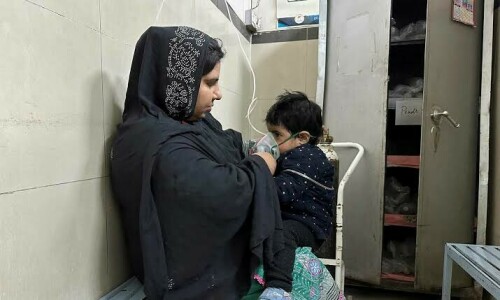LAHORE: The Lahore High Court has dismissed an appeal of a man convicted for sexually assaulting a minor girl in her school.
The counsel for the convict/appellant argued that a false case was registered against his client as none had seen the occurrence and no test identification parade was held. He also questioned the delay in reporting the incident to the police. He said testimony of witnesses was inconsistent and contradicted each other and the appellant being a civilian was made a scapegoat.
The counsel argued that the medical evidence and forensic report negated the act of rape.
A deputy prosecutor general opposed the appeal and argued that in a case like the instant one, the statement of the victim alone was sufficient to record conviction. He said in the case the statement of the victim was corroborated by so many other factors including the medical evidence.
He said the delay in reporting the matter was not fatal as the prosecution case had been placed before the trial court in a natural flow as the facts developed; no manipulation or concoction had been attempted.
In his verdict, Justice Amjad Rafiq refers to principles cited in a Canadian court judgment and observes that it is high time to follow these principles and allow “tender years” exception to general rule and create a room for admissibility of such evidence particularly in child abuse cases.
He notes that the mother of the victim when examined stood firm during cross-examination and the defence remained unsuccessful in eliciting something damaging to the prosecution or favourable to the defence. He says her (mother) statement being natural and realistic inspires full confidence and lends credible support to the statement made by the victim.
Justice Rafiq observes the evidence of the mother for spontaneous declaration made to her by the victim about rape and injury has been corroborated by the doctor, before whom the victim made such statement.
Rejecting another argument of the defence that no identification parade was held, the judge observes that there is a difference between identification and recognition. He says it is common understanding and acknowledgement that we know many people in life by their profession or the act they perform around us at workplace or in neighbourhood but we do not know their names or their parentage, however, they are well canvassed in our mind for whose identification through a formal parade is unnecessary.
The judge dismissed the appeal of the convict against his life sentence and also dismissed another appeal by the prosecution for the enhancement of the sentence.
The appellant, Kamran (33), a security guard at a school in Gujranwala cantonment, was indicted for rape with a six-year-old student with the abetment of a co-employee Barkat Ali. The trial court, however, acquitted Ali and handed down a life imprisonment to Kamran.
Published in Dawn, January 12th, 2022











































Dear visitor, the comments section is undergoing an overhaul and will return soon.